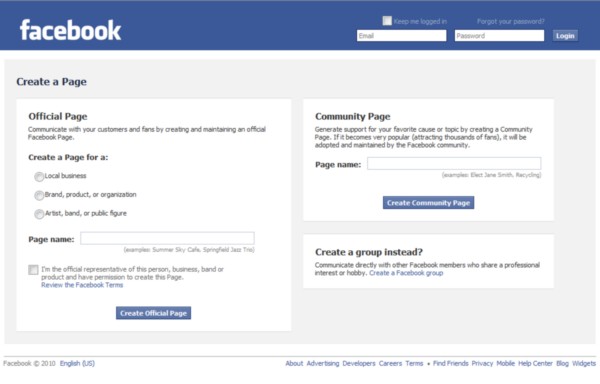
Adobe gives up on Flash for iPhone and iPad, but leaves the door open
In an indirect yet obvious way, Section 3.3.1 of Apple's new iPhone developers' agreement binds developers to a promise that whatever they bring to the iPhone will be created exclusively for the iPhone. It effectively bans the use of cross-platform tools or middleware like Adobe Flash, by saying anything Apple approves must be coded in the company's own Objective-C, or in C or C++.
If Adobe were to have proceeded with its previous plans to forge an official, working Flash platform for iPhone, that would have been the defiant move. Instead, Mike Chambers, the company's product manager for Adobe Integrated Runtime (AIR), found himself yesterday afternoon sounding the retreat.

Firefox starts reining in Flash, Silverlight, QuickTime
Download Mozilla Firefox 3.6.4 public beta for Windows from Fileforum now.
Starting today, an ambitious project from the Mozilla Foundation called "Lorentz" makes its first public, experimental debut, with the release of a public beta of Firefox 3.6.4. Mozilla doesn't often promote a public beta of a point release, but this time, the organization needs data from the field regarding the stability of a critical new feature that could help it regain lost traction against competitors Google, Opera, and Apple.

Global privacy leaders to Google: We hope Buzz taught you a lesson
Google Buzz should not have changed Gmail to such an extent that its existing users found themselves sharing personal information on a social network without their consent. That's the message sent in a letter to Google CEO Eric Schmidt yesterday, made public today by Canada's Privacy Commissioner, Jennifer Stoddart.
In that letter, Stoddart and her counterparts from nine countries asked Google to provide them with a report about the lessons the company has learned from the Buzz experience, and how those lessons will improve the way Google rolls out products in the future.

New Facebook 'Connections' may expose users' likes, filter likes from profiles
Facebook's privacy policy, like its services, is an evolving organism. Recently, that evolution has been reactive rather than pro-active. Another reaction may be in the works after today's announcement of a new Facebook feature that enables users to subscribe to personal interests or "likes," officially called "Connections," the way they connect to other users.
The company said today there's a new way for a Facebook user to block others, including friends, from seeing one's "connections" -- the list of pages that represent things one likes to do (e.g., snowboarding) or to partake in (e.g., classical music), or people they may enjoy who may not be represented by their own Facebook pages (e.g., Bertrand Russell, Elvis Presley). But someone who's perusing the page for people or things that Facebook users vote that they "Like" (which replaces "Become a Fan Of" today) may still see the list of everyone who has voted she likes something, the company also said -- indicating that one's likes may never be completely private.

Microsoft fixes Windows: Automated troubleshooter encourages assistance
At about this time last year, we received some skeptical comments from folks who questioned whether it was wise for Betanews to declare Windows 7's automated troubleshooting system one of the new operating system's Top 10 features -- #8, to be specific. Saying a software publisher has improved its product by making it easier to find out what's wrong with it, is in one sense a bit ironic, and in another the sort of thing that typically smacks of the kind of messages brought to readers directly from the vendor without any filtering whatsoever.
The reason I declared what Microsoft is now calling its "Fix-It Center" (now with its own Support page) #8 is the same reason I declared Action Center #1: It has the potential for refashioning users' impressions of Windows, so that they come to understand that troubleshooting one's computer is as much a part of life as repairing little things in one's home.

Office 2010 releases to manufacturing, availability as soon as May 1
The first volume licensing arrangements for Microsoft Office 2010 will be made through company partners on May 1, almost two weeks earlier than expected. This news today from the company's Office Engineering team, which released the final build of all versions of the company's principal applications suite today.
"Since the start of our public beta in November 2009, we've had more than 7.5 million people download the beta version -- that's more than 3 times the number of 2007 beta downloads!" reads this afternoon's post by the Engineering team. "The feedback that we've received from all these programs has shaped the set of products we're excited about, and that I'm sure will delight our customers."

Interview: Internet coalition leader sees a way through for the Broadband Plan
Last Tuesday, in a conference that included invited members of the press including Betanews, Markham Erickson, the Executive Director of the Open Internet Coalition -- which advocates for Google, Facebook, PayPal, Netflix, Skype, Sony, Twitter, Amazon, and TiVo, among others -- urged the Federal Communications Commission to bounce back from its loss to Comcast last week in DC Circuit Court, by affirming its right to regulate broadband Internet services under a different section of US telecommunications law than it's used before.
Since that time, a surprising amount of water has passed under the bridge, including a round of Senate hearings Wednesday in which leaders suggested new legislation could solve the problem, so that the FCC would not have to declare regulatory authority under Title II of the Telecommunications Act -- the part that typically applies to telephone networks. A key Senate Republican, Kay Bailey Hutchison (R - Texas), vowed to oppose any effort by the FCC to redeclare under Title II.

Terms of ACTA draft agreement to be revealed, EU promises no 'three strikes'
In a news release today from Wellington, New Zealand, the site of the latest round of worldwide negotiations over terms for the Anti-Counterfeiting Trade Agreement (ACTA), the European Union announced it has gotten its wish: Negotiators have unanimously agreed to reveal the terms of their latest draft to the general public, not necessarily for comments but certainly for general inspection, in an official release next Wednesday.
That draft, the EU said, should contain no trace of a controversial provision compelling governments to impose "three strikes" legislation (also known as graduated response) for accused intellectual property infringers, similar to legislation still being tried in France even after courts there declared them unconstitutional.

2006: Google considered a PR campaign against content owners' 'foot-dragging'
In what may have, by now, become an exercise in the airing of corporate dirty laundry (or, in some cases, not even dirty), Viacom yesterday released more evidentiary documents from its court battle with Google. This second round of what was promised to be three public releases (though there could be more to come) includes confidential Google executive presentations from the period prior to its acquisition of YouTube, when the company was considering instead bolstering Google Video to become more competitive.
Rather than being incriminating, the documents paint Google executives to be cunning, shrewd, and eager to assume the mantle of the moral high ground. But they also reveal instances where the company considered pressing its high-ground position to its advantage, with prospective PR campaigns and likely incentives to the press that would encourage the viewpoint that media companies such as Viacom (parent of Paramount Pictures and MTV Networks) were behind the times, inflexible, and unwilling to open up their content vaults for fair use.

With Silverlight 4 and Flash Catalyst, the RIA battle begins in earnest
Download Silverlight 4 RTM for Windows from Fileforum now.
In recent years, most Web applications in widespread use have been developed with Web browsers as their platform. Here, one imagines Java advocates are already composing their complaint letters. But with Web resources bound to URLs, for most developers, it's made sense to utilize the functionality most commonly associated with URL-bound resources: HTML, JavaScript, and now its rapidly maturing derivative, AJAX.

Key senator gears Congress for a long fight to reform the FCC
A long-planned hearing on Capitol Hill to discuss the Federal Communications Commission's Broadband Plan took on new meaning yesterday, a week after the DC Circuit Court ruled the Commission lacked the authority to implement net neutrality regulations. With a coalition of Internet business interests pleading with the FCC to declare itself the "cop-on-the-beat" for net neutrality under a different provision of US telecom law than it had been using, now Sen. Jay Rockefeller (D - WV), chairman of the Senate Commerce Committee, says the FCC may not need to take that step.
In his remarks yesterday, Sen. Rockefeller told his committee he's ready to begin the long, and undoubtedly arduous, process of changing the law to give the FCC the authority that the Broadband Plan assumed it had to begin with.

Google may face legal challenges if it open-sources VP8 codec
Last February, at the time Google completed its purchase of On2 Technologies, the video technology patent holder and maker of the VPx series of video codecs, the Free Software Foundation posted an open letter urging Google to release the latest version, VP8, to the open source community. Though Google has been pretty vocal since then about what it has perceived as the bright prospects for On2 under its wing, the volume was turned down to low on Tuesday, immediately after the digital television news service NewTeeVee cited anonymous sources as saying Google intends to do just as FSF asked.
Google declined official comment on the story to Betanews, but the tone of the spokesperson's declination speaks volumes, especially from this characteristically forthcoming company: "We're excited to be working with the On2 team to continue to improve the video experience on the Web, but we have nothing to announce at this time."

Analyst roundtable reunion: The last remake of Palm
Though the news is relatively fresh that Palm Inc. has been negotiating with China's Huawei Technologies about a possible buyout, the word from Investors' Business Daily sources is that these negotiations have actually been ongoing for at least two months. That nothing has come of them since February may be the most important, and potentially distressing, news of all.
In light of that realization, Palm is suddenly in need of yet another comprehensive makeover to save its flagging image. Suggestions from the field include relatively simple ones from Betanews contributor Carmi Levy -- that it should keep its Pre Plus and Pixi Plus hardware, and focus on building up its applications base -- and the completely opposite suggestion from widely respected industry analyst Dr. Gerry Purdy, who has published his viewpoints on mobile technologies in what's now called the MobileTrax newsletter, since 1986.

After one economic pothole, Intel is wary of another
What saved Intel's neck during the worst part of the last economic downturn was the Atom processor, the heart of netbooks that started selling well as consumers' budgets tightened. Now that the 2008-09 dip is over, and even businesses' budget belts are loosening, the company's attention returns to the server side of the equation.
In Intel's quarterly conference call yesterday evening (Betanews thanks Seeking Alpha for the transcript), CEO Paul Otellini pointed to cloud computing and virtualization as trends that are empowering a resurgence in business sales...and helping the company to overcome an apparent tapering off in consumers' interest in netbooks.

Skype and colleagues to FCC: Declare yourself fit to regulate the net
Last week's staggering defeat to Comcast in a landmark DC Circuit Court decision left the US Federal Communications Commission stripped of any "ancillary authority" it thought it had to regulate the practices of Internet service providers. As of now, it isn't exactly clear just which government agency does have that authority.
Rather than wait for Congress to make a decision on the matter -- an event which may, arguably, never happen at all -- a coalition of major Internet stakeholders, including Skype, Google, eBay, Amazon, Netflix, TiVo, and Facebook are calling on the FCC to take action. Quite literally, they want the Commission to convene a hearing declaring its intention to fill the gap left by the court's removal of FCC authority...with FCC authority.

